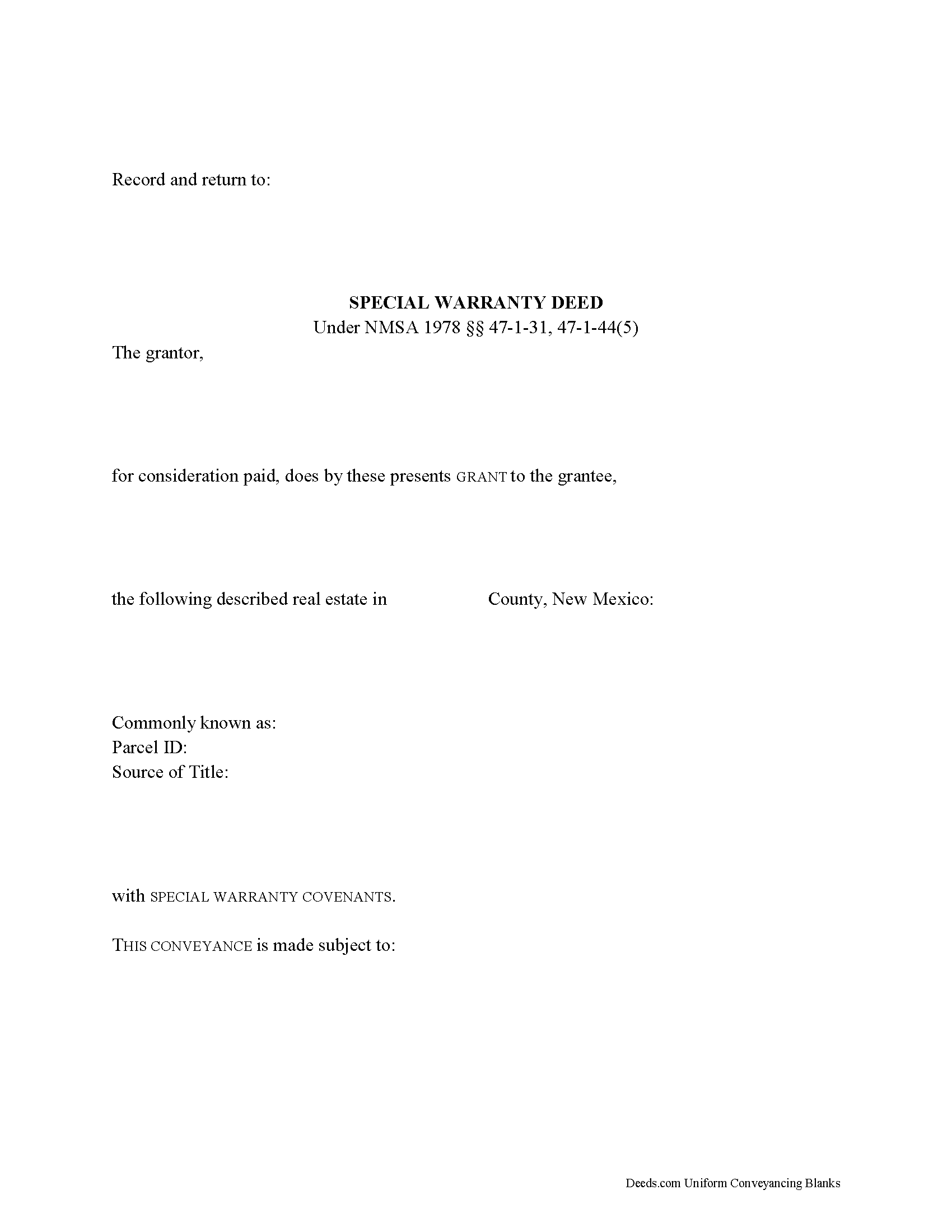Download New Mexico Special Warranty Deed Legal Forms

New Mexico Special Warranty Deed Overview

In New Mexico, real property can be transferred from one party to another by executing a special warranty deed. Special warranty deeds are statutory under NMSA 1978 Sections 47-1-31 and 47-1-44(5).
The statutory form includes the words "with special warranty covenants" (NMSA 1978 Section 47-1-44(5)). The words "special warranty covenants" carry implied covenants that the property is free from encumbrances made by the grantor (with the exception of any noted in the deed), and that the grantor, "and his heirs, executors, administrators, and successors shall warrant and defend" the title against lawful claims and demands of "all persons claiming by, through or under the grantor, but against none other" (NMSA 1978 Section 47-1-38). So, unlike a general warranty deed under 47-1-37, a special warranty deed only guarantees the title against claims that arose during the time the grantor held title to the property.
A lawful special warranty deed includes the grantor's full name, mailing address, and marital status, and the grantee's full name, mailing address, marital status, and vesting. Vesting describes how the grantee holds title to the property. Generally, real property is owned in either sole ownership or in co-ownership.
For New Mexico residential property, the primary methods for holding title in co-ownership are tenancy in common, joint tenancy, and community property. A grant of ownership of real estate to two or more unmarried persons is presumed to create a tenancy in common, unless a joint tenancy is expressly created in the conveyance (NMSA 1978 Section 47-1-15). A conveyance to a married couple is presumed to be community property, with some exceptions (NMSA 1978 Section 40-3-12).
As with any conveyance of realty, a special warranty deed requires a complete legal description of the parcel. Recite the prior deed reference to maintain a clear chain of title, and detail any restrictions associated with the property. Finally, the document must meet all state and local recording standards. Note that because New Mexico is a nondisclosure state, certain types of personal information, including the consideration exchanged in a transfer of property, are withheld from public record.
Sign the deed in the presence of a notary public or other authorized official. Record the deed at the county clerk's office in the county where the property is located for a valid transfer. Contact the same office to confirm accepted forms of payment.
All transfers require a Real Property Transfer Declaration Affidavit, which details the sales information for the transfer. There are certain exceptions, such as an instrument delivered to establish a gift or a distribution, or an instrument pursuant to a court-ordered partition. If the transfer is exempt from the affidavit requirement, detail the reason why on the face of the deed. See NMSA 1978 Section 7-38-12.1(D) for a list of exemptions. This affidavit must be filed with the assessor's office within 30 days of the deed's recordation.
This article is provided for informational purposes only and is not a substitute for legal advice. Contact an attorney with any questions related to special warranty deeds or transfers of real property in New Mexico.
(New Mexico SWD Package includes form, guidelines, and completed example)